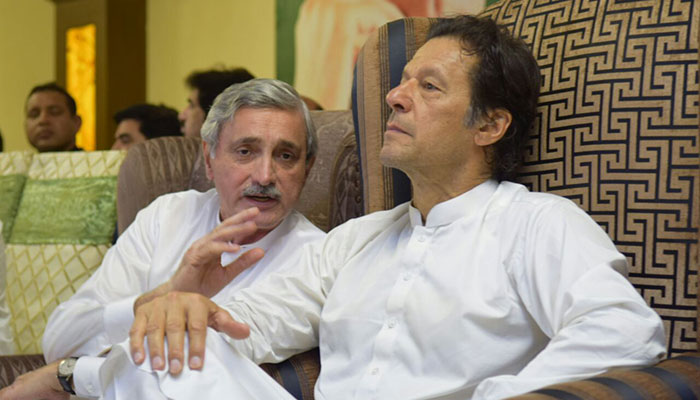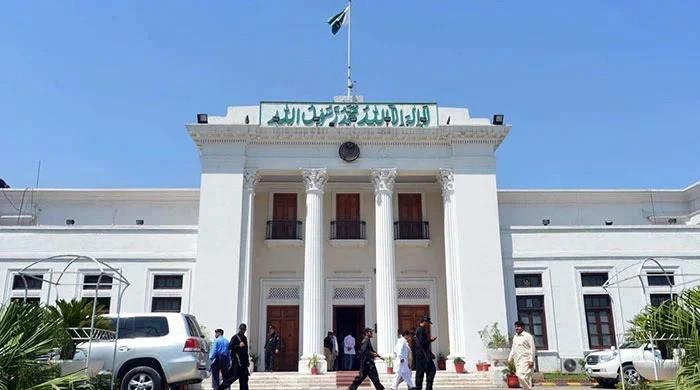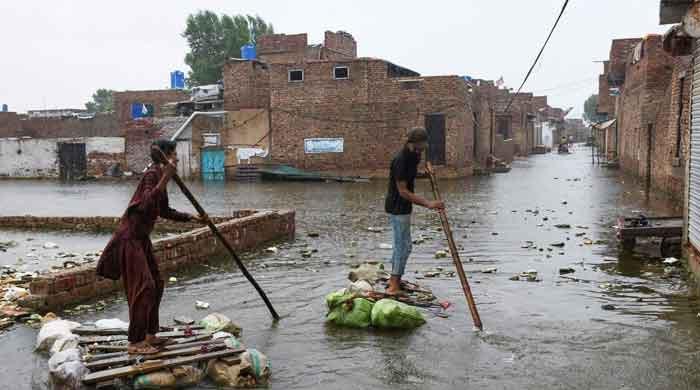The sharecropper and his revolution
The Sharif family, we know, is big on sugar, so big that it used to manufacture sugar plants at Ittefaq in the 1990s
November 06, 2017

I may be a loser, but I am a good loser. I admire those who have made it big in life, leaving people like me coughing in the dust stirred by their speeding 4x4s. One of my heroes is a sharecropper from my native southern Punjab who is bankrolling the next revolution in Pakistan, and hopefully in the whole of the Muslim world. Before I get to my point, you must be patient and allow me to explain the context.
Let me take you first to the cotton fields in my village in Muzaffargarh district. After poisoning water tables, giving cancer to women and destroying millions of lives, the cotton crop has stopped feeding farmers. Even at the best of times, the real benefit from the crop that runs Pakistan’s economy went to the middlemen, ginners and spinners, who manipulate prices of the yield year after year through an elaborate mechanism fine-tuned over decades.
Any hopes for the revival of the cotton crop were dashed in the historic floods of 2010 that left water logging in their wake and raised the water table so high that you can single-handedly dig a well to draw water in half an hour. Cotton, I must tell you, is a crop that does not like water at all.
Luckily there was sugar, because there are winners too. Sugar is the second name of crony capitalism in Pakistan. For four decades, it has been the quickest and safest route to become a billionaire in the country. The relation between the sugar industry and politics is so close that sugar oils the wheels of all three major political parties in Pakistan.
Fortunately, small farmers aren’t much concerned about political economy. Like our reporters, they can’t distinguish between millions and billions, rupees and dollars, imports and exports etc. It’s their failing crops and rising debts that keep them occupied. When they are able to make some profit, it is hardly more than their own labour. Like small shops, small farms are a substitute for a job, not a business.
Sensing an opportunity, the Sharif family relocated three sugar mills from the central districts of Punjab to ‘the cotton-growing southern regions’ of Punjab. The Sharif family, we know, is big on sugar, so big that it used to manufacture sugar plants at Ittefaq in the 1990s. My district was lucky to get one of the three sugar mills. The Sharifs, however, were violating a ban that was imposed on setting up new sugar mills in the province imposed in 2006 under the Punjab Industries (Control on Establishment and Enlargement) Ordinance of 1963.
The relocation of sugar mills was challenged, amongst others, by the revolutionary sharecropper and owner of sugar mills from Multan, Jahangir Khan Tareen. According to the petitioner, relocation amounted to setting up new mills.
The petitioner’s counsel argued that, over the years, the provincial and federal governments had prohibited the establishment of new sugar mills in Bahawalpur, Muzaffargarh, Rajanpur and Rahim Yar Khan in order to protect the cotton crop. Tareen’s lawyer, Barrister Aitzaz Ahsan, pleaded that new mills in the area would result in water shortage which would in turn affect the production of cotton crops.
In September this year, the Lahore High Court ordered that the mills should be shifted back to central Punjab. If you are a son of an additional secretary or a daughter of a former diplomat based in Lahore or Islamabad, it may look like a great tabdeeli to you. However, for people in my village, it is business as usual.
I am not sure how a caliph would have reacted to such a situation. However, I am sure a legislator who de-industrialises his own constituency and inflicts poverty and unemployment on his people will be chased out of politics in Britain or Germany.
During the court proceedings and in the media, the most often repeated arguments included the sanctity of the cotton crop and our great national interest in making sure that southern Punjab sticks to this crops that fuels Pakistan’s economy.
You do not have to be a rocket scientist to feel that there is something colonial in these restrictions. How can an area be forced to produce a primary commodity at a huge cost to its poor residents while all value addition takes place in other areas without good reason. It would not be so discriminatory if a similar restriction were imposed on industrialists to set up or relocate cotton-based industries in southern Punjab. After all, the textile industry hardly requires anything other than cotton and unskilled labour, both found in abundance in the area. These restrictions violate the basics of free economy so religiously followed in all other matters.
As we know from recent court proceedings, Tareen himself is a sharecropper. He is farming 18500 acres of land spread over three districts that the poor man does not own but has taken on lease from other well-off farmers of the area and God knows who else. He did not pay any tax on the 10 billion rupees earned through farming on this small patch of land through his pair of bullocks. This is because, according to his lawyer, sharecroppers – -those working on other peoples’ land – are not supposed to pay any tax.
Since owners of sugar mills exploit poor sharecroppers, Tareen decided to set up his own sugar mills. According to Tareen’s lawyer, the sugarcane that grows on the land is bought by Tareen’s sugar mills. While he was planning to buy one of his mills, his cook and driver, Allah Yar and Haji Khan, who had overheard his plans – or out of their own shrewd sense of investment – went ahead and bought shares of United Sugar Mills Limited (USML) months before Tareen bought the mill.
The two individuals made a cumulative gain of Rs70.8 million from the sale of the mill’s shares. Some people term it insider trading. In my opinion, Tareen is the most generous employer in the whole world and his name should be put in the Guinness World Records.
In order to spread his revolution far and wide, Tareen joined a revolutionary party and put a fixed winged planed and a helicopter, owned by his sugar mills, in service of the party leader, the leader of the revolution. In 2013, the PTI held its first intra-party elections. The subsequent election tribunal, headed by Justice Wajihuddin, pointed the finger at some top PTI leaders, including Tareen, and held them responsible for massive rigging in the intra-party elections. He recommended that they be thrown out of the party. However, it was Wajihuddin who was thrown down the Bani Gala hill. Such is the power of sugar
Twenty years ago, this is how Imran Khan explained to me his reasons for not founding a party: “Suppose I form a party. Where would I get the money from? If I get money, I would have to repay people. That again is wrong since I would be obliged to others.”
PS: Did I tell you I am taking lessons in cooking? You never know when an opportunity may knock at your door.
Originally published in The News











